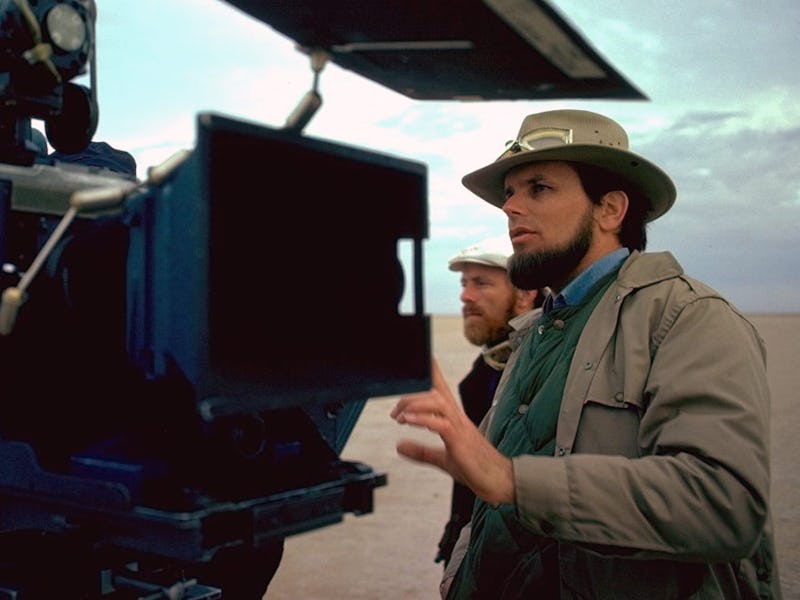Gary Kurtz R.I.P. — The Man Who Brought ‘Star Wars’ to the People
He was the unpretentious Han Solo to George Lucas's Young Skywalker.

Legendary Hollywood producer Gary Kurtz died on Sunday at the age of 78, but to devoted Star Wars fans and film buffs, he will forever be remembered as the Han Solo to George Lucas’s Luke Skywalker. Kurtz’s practical approach to producing the original Star Wars in 1976 was exemplified by his utter lack of pretentiousness. If Lucas was the wide-eyed auteur, getting in touch with his boyhood fantasies, Kurtz was the space navigator savvy enough to make the whole thing fly.
There’s a tinge of revisionism in discussions about who was responsible for what in terms of the brilliance of Star Wars. Every geek worth his salt (or spice) probably knows the genius of The Empire Strikes Back was Irvin Kershner, and lately, (thanks to his work on The Force Awakens and Solo) Lawrence Kasdan was the guy who not only wrote Empire but Lucas’s Raiders of the Lost Ark, too. If the behind-the-scenes crew of Star Wars was like the Beatles, and Lucas, Kasdan, and Kershner, the Paul, John, and George in terms of creativity, Kurtz might have been the Ringo. He was a professional who kept the rhythm of the original Star Wars accessible and connected to the fans. He was reliable without being artsy, and as result, allowed all of Star Wars to become great art.
Back then, of course, Star Wars fans didn’t exist. And, as a producer, Kurtz’s insight about how to invent the Star Wars fanbase was brilliant. Speaking to Mashable in 2014, Kurtz revealed his approach to selling Star Wars to the studio and to existing science fiction fans in two different ways.
“If only the hardcore science fiction audience went to see this film, it would still make enough money to make its [$8 million] budget back, and then maybe a small profit,” Kurtz explained. “The risk would be low enough that it should be worthwhile.” But Kurz also knew that Star Wars was not a science fiction film, and made sure science fiction fans knew it too. When Kurtz and Mark Hamill presented Star Wars to San Diego Comic-Con in 1976, there was some hostility from the crowd, dismissing Star Wars as reductive and not science fiction. Which is why Kurtz defended the project as “space fantasy.”
To this day, the idea of Star Wars as science fiction is hotly debated, but Kurtz was one of the first people to recognize that when it came to this film and how it would be discussed, the devil was in the details. He framed the sci-fi debate around Star Wars by his insistence on the “space fantasy” angle. This single distinction probably saved Star Wars from too much savaging by respected sci-fi critics. (Even though some of them still went after it anyway.) It’s hard to imagine this now, but the fact that it was Kurtz — not Lucas — out there defending the movie to a crowd of fanboys before it debuted is astounding. Contemporarily, this would be like Lucasfilm CEO Kathleen Kennedy going door-to-door begging Doctor Who fans to buy tickets for Episode IX. As a producer, Kurtz risked a lot on his support for Star Wars, and George Lucas (and the rest of the world) remain very lucky that he did.
Of course, as Obi-Wan Kenobi might say, “There’s no such thing as luck.” But again, this is where Kurtz was closer to a scruffy realist than an artistic Jedi figure. Before working with George Lucas on Star Wars, Kurtz collaborated on Lucas’s first hit, the heartwarming coming-of-age nostalgia film, American Graffiti. In almost every way, this is where Kurtz got his faith in George Lucas. It didn’t have anything to do with the imaginative originality of Star Wars as a concept — Kurtz was firmly aware Flash Gordon was an inspiration — but instead, Kurtz connected to the human stories George Lucas was able to tell. Just as Luke and Han parted ways at some point and the Beatles eventually broke up, by the time of Return of the Jedi, the Kurtz-Lucas partnership was over. Were Star Wars movies good after that fact? Many would debate they got even better, particularly recently. But, when you consider that the only two Star Wars movies everybody can agree on are the two films that Gary Kurtz worked on, it’s easy to see that regardless of their quality, after Kurtz’s departure, Star Wars movies were never the same.